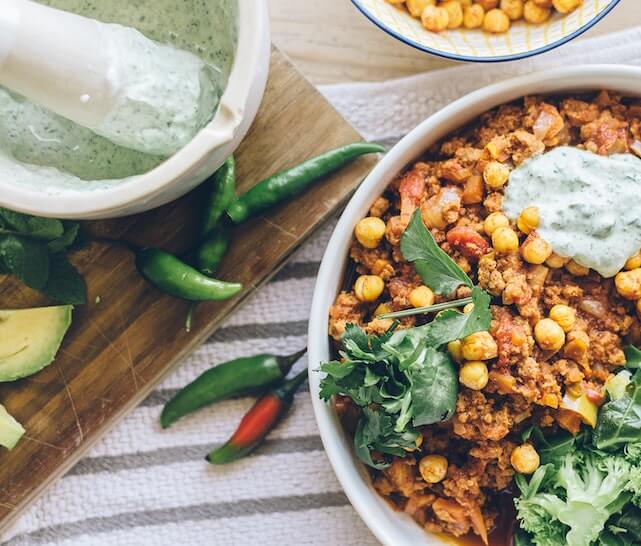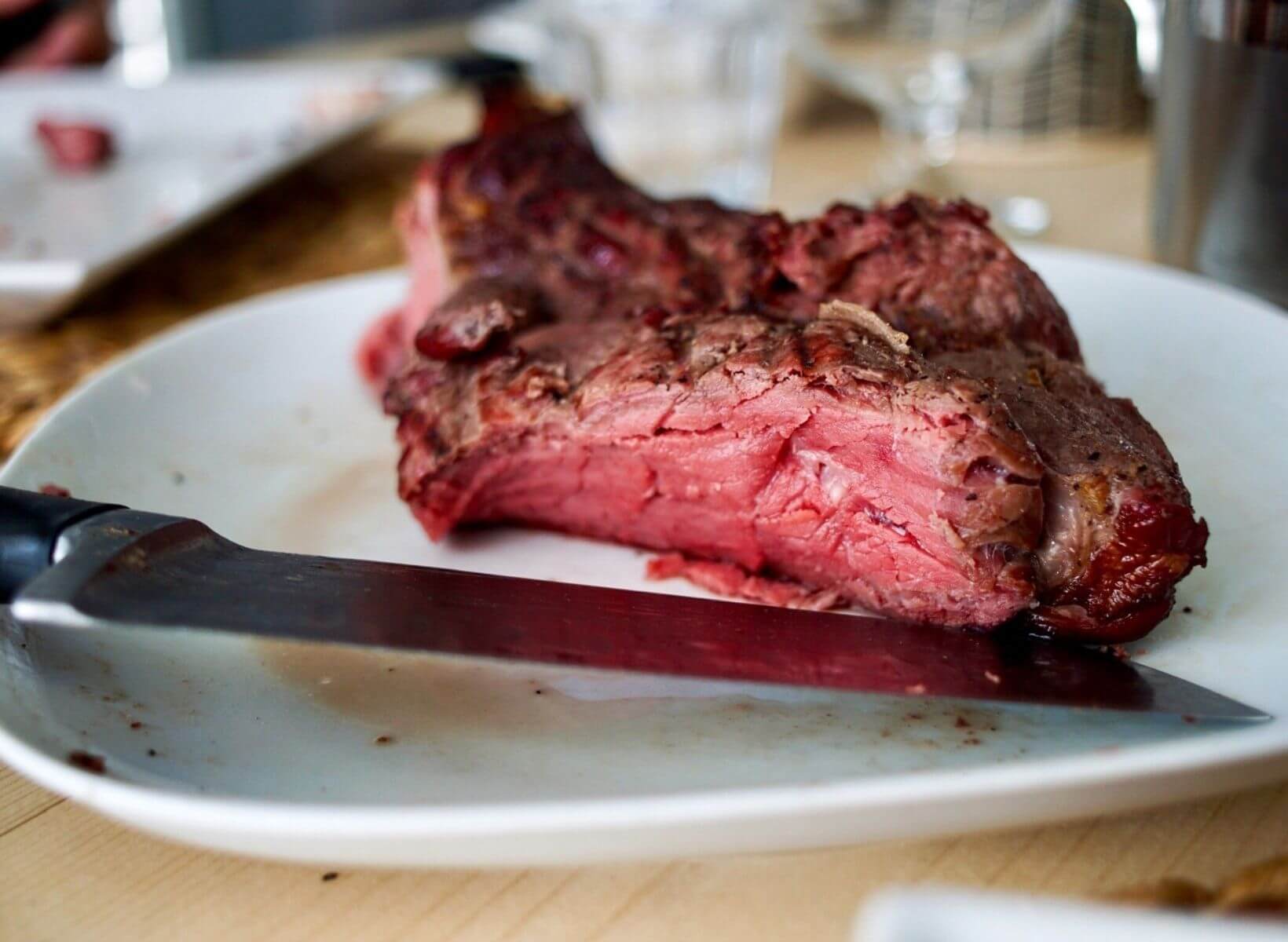Every so often, a new diet trend jumps onto the scene. From cabbage soup to raw food, we've seen it all. But for the last few years, low-carb diets for weight loss have remained at the top of the list.
Low-carb diets can vary depending on how many carbs are "allowed." Proponents of low-carb diets say cutting back on carbs helps people lose weight faster than simply cutting calories. At the same time, some health professionals argue they are just too restrictive and don't help any more than other diet plans.
So what's the truth? Do low-carb diets work for weight loss? And are they safe long-term for everyone? We answer these questions, plus provide some tips to help you achieve a healthy weight (and still eat carbs!).
<p class="pro-tip">Related reading: Are low-carb diets healthy?</p>
What Are Carbs?
To understand how a low-carb diet could be helpful, it's crucial to have a basic understanding of what carbs are and what they do in the body. Carbohydrates, aka carbs, are a group of foods that, when digested, are converted to a sugar called glucose<sup>1</sup>.
Carbohydrates include:
- Sugars
- Starches
- Fiber and cellulose
- Gums
Your body uses glucose as fuel or energy. After eating a meal with carbs, glucose levels rise in your blood (known as your blood sugar). How much and how long your blood sugar rises can depend on the amount and type of carbs you eat.
Simple or refined carbohydrates (also called high-glycemic carbs) elevate blood sugar very high and very fast. Most of the fiber and nutrients are removed from refined carbs during processing (more on fiber later in the article). Examples of these types of carbs include:
- Foods made with white flour like bread, pasta, crackers, or chips
- Baked goods
- Candy
- Soda
- Juice
- White rice
- Sweeteners like honey, sugar, corn syrup
Complex carbohydrates have a more gradual impact on your blood sugar. Glucose doesn't spike as high or stay elevated as long because these carbs are higher in fiber. Examples of complex carbs include:
- Whole or sprouted grains
- Fruits
- Vegetables
- Quinoa
- Legumes
The body keeps your blood sugar tightly regulated. When glucose rises, the pancreas releases insulin, a hormone that lowers your blood sugar<sup>2</sup>. It acts like a key to unlock your cells to take glucose out of the blood. The more your blood sugar rises, the more insulin is secreted.
As you will see below, blood sugar balance and insulin levels are key pieces of the low-carb puzzle.
What Is a Low-Carb Diet?
The term low carb might mean something different to everyone, as there are multiple ways to follow the lifestyle. There isn't simply one definition, but generally, a low-carb diet is anything less than 130 grams of carbs a day, although many go much lower<sup>3</sup>.
Estimates of average carb intake for most people range from 40–50% of daily caloric intake, so technically, any amount of carbs that fall below this range could be considered a low-carb diet<sup>4</sup>. Most of the popular low-carb diets keep carbs well below this amount.
Examples of Low-Carb Diets
The following are some of the most popular low-carb diets:
<h3 id="d1">Ketogenic Diet</h3>
The ketogenic (keto) diet is recently popular, but it's not new. Keto has been used as a therapeutic diet for children with epilepsy for a long time<sup>5</sup>. The basis of the keto diet is that fat is used for energy instead of carbs.
<h3 id="q3">What Happens When You Stop Eating Carbs?</h3>
When carbohydrates are heavily restricted, the body will adapt by entering ketosis. Ketosis is a metabolic state where you use ketones instead of carbs for energy. During ketosis, your liver makes ketones, alternative energy sources for the body made from fat<sup>6</sup>.
Your body will still make a small amount of glucose through a process called gluconeogenesis, which helps reduce the risk of hypoglycemia (dangerously low blood sugar)<sup>7</sup>.
The keto diet limits carbs to 5–10% of total calories, which is less than 50 grams a day for most people, although many people who follow keto aim for closer to 20 grams each day.
Fat intake is also increased to 70–80% of total calories (compared to 20–30% as recommended for a non-keto diet) to make up for the carb reductions and ensure there’s enough fat to create ketones for energy.
Foods okay to eat on the keto diet include:
- Meat, poultry, fish
- Eggs
- High-fat dairy including butter, cheese, and ghee
- Nuts and seeds
- Coconut, avocado, and olive oils
- Minimal amounts of low-carb fruit like berries, avocados, and coconuts
- Leafy greens or other non-starchy veggies
Otherwise, all other foods that contain carbs, including grains, corn, sweeteners, most fruits, beans, legumes, and higher-carb veggies are off-limits because eating them would bring the body out of ketosis.\
<p class="pro-tip">Related: How A Continuous Glucose Monitor Can Help With Keto</p>
<h3 id="d2">Paleo Diet</h3>
Paleo limits any foods that were not readily available to our hunter-gatherer ancestors (although precisely what foods they had access to is still under debate)<sup>8</sup>. It emphasizes food quality, including eating organic, grass-fed, or food grown using sustainable practices whenever possible.
Paleo is not necessarily low carb, but many who follow it reduce carb intake by default, as it cuts out all processed products and many naturally carb-containing foods. Strict paleo limits the following foods:
All cereal grains
- Corn
- Legumes
- Artificial sweeteners
- Vegetable oils
- Soy
- Dairy
But unlike keto, which focuses on how many carbs you should eat, paleo doesn't necessarily limit intake as long as the source is whole and unprocessed.
The Paleo diet encourages:
- Fruits
- Vegetables
- Quality meat, poultry, and fish
- Eggs
- Avocado, olive, and coconut oils
- Nuts and seeds
<h3 id="d3">Atkins and South Beach Diet</h3>
These two diets are worth mentioning because they helped kick off the low carb mainstream trend, but they are not as popular today.
Atkins leans closer to a keto approach with a heavy focus on fat while reducing carbs, while South Beach allows some carbs but specifies which ones you should avoid.
No matter which diet you read about, you've likely met someone who has followed it successfully and others who didn't stick with it. So the million-dollar question is: Do these diets really promise any better weight loss results than other eating patterns?
{{mid-cta}}
Do You Need to Cut Carbs for Weight Loss?
Low-carb diets do show benefits for weight loss in research, at least in the short term<sup>9</sup>. Most low-carb diets encourage cutting out processed foods, so weight loss can happen due to healthier eating habits.
But there are some other reasons low-carb diets work for some people. Very low-carb diets like keto may enhance fat burning as the body turns to fat instead of carbs for energy. According to some research, keto may also positively influence hunger hormones, although some people notice worsening cravings with more restriction, so it varies with each person<sup>10</sup>.
Low carb could also promote weight loss because of the impact on your blood sugar and insulin response. As mentioned above, refined and processed carbs tend to spike blood sugar and increase insulin output, promoting fat storage<sup>11</sup>. Low-carb diets could also help reduce the risk of diabetes and blood sugar imbalance by decreasing the intake of the foods that spike blood sugar<sup>12</sup>.
But do you need to cut carbs completely to burn fat or balance your blood sugar? Not necessarily, and it may not even be a good idea for some people.
Low-Carb Diets May Not Be a Long-Term Solution
Many studies on low-carb diets aren't longer than six months, so it's not exactly clear whether the benefits continue. While some people may follow a keto diet easily, others may feel overly deprived and can't sustain such severe carb restriction. Some studies show that people who follow a very restrictive diet are more likely to binge or experience a loss of control with food<sup>13</sup>.
The cold hard truth: nearly anyone can lose at least some weight by following a strict diet. The challenging part is maintaining and continuing the loss over time.
Keto may also impact women and men differently due to hormonal differences. Women's bodies, especially their reproductive and stress hormones, are vulnerable to stress, and nutrient restriction is considered a big stressor on the body<sup>14</sup>.
And it's questionable whether cutting back on otherwise health-promoting foods like fruit and veggies (as seen with keto) is suitable for long-term health since we know there are so many vital nutrients in these foods.
Low Carb vs. Low Fat for Weight Loss
A large meta-analysis examining many different popular diets, including low carb and low fat, found no weight loss differences between any of the diets after a year. Instead, the researchers concluded that since we are all so very different in terms of our eating habits, genetics, and environment, the best diet is the one you are likely to follow long-term<sup>15</sup>.
So do you need to completely cut out carbs for weight loss? No, you don't.
But you can take a closer look at how many carbs you eat. Since many people eat much more than they realize, cutting carbs may not mean officially going low carb, but lowering carbs to a healthier amount.
You can also make smart carb choices that promote a healthy blood sugar response that will, in turn, help with weight loss and support your metabolic health.
Smart carbs can include the type of carbs you eat and which foods you choose to eat with them. Let's examine this in more detail.
Good Carbs for Weight Loss
Generally, there aren't any "good" or "bad" foods. Instead, certain types of carbs are more likely to set you up for weight loss success, making them a better choice.
The problem with some of the low-carb diets is that by limiting carbs, you restrict an essential nutrient for health: fiber.
Fiber is a carbohydrate, but it travels through the body without raising blood sugar since we lack the enzymes to digest it. People who eat more fiber tend to have lower heart disease, cancer, diabetes, and dementia risks<sup>16</sup>.
Fiber helps with blood sugar balance and satiety, helping with weight loss by reducing overeating and food cravings<sup>17</sup>.
Fruits, vegetables, whole and sprouted grains, and legumes are all high-fiber carbs that support weight loss. These foods are nutrient-dense, high in vitamins, minerals, and anti-inflammatory phytochemicals to promote a healthy weight<sup>18</sup>.
Prebiotics and Gut Health
Low-carb diets may also inadvertently limit prebiotics, a type of fiber fermented by your gut bacteria. You've likely heard of probiotics, which are live bacteria or other microorganisms, but prebiotics are the foods that feed your gut bacteria and are vital for gut health.
Since you can't digest them, your gut bacteria feed on prebiotic fibers once they reach the lower GI tract. Gut health is associated with weight, including how easily you lose weight. Limiting prebiotic-rich foods on a low-carb diet could adversely impact your gut health and influence your weight<sup>19</sup>.
What About Sweeteners?
Cutting back on carbs means cutting out added sweeteners, which is good. But whether or not you are following a low-carb diet, there will come a time when you want something sweet. So how do you know which sweeteners are good choices?
To preface, if you aren't following a strict diet, there's always room for treats. Is it your birthday? Enjoy the cake, just get back on track the next day. There's room for treats on a balanced diet. Sweeteners and sugars are only a problem if the overall pattern of your diet relies heavily on them.
That said, some lower-carb sweeteners are available (whether you follow or low-carb diet or not) that don't spike your blood sugar, including:
- Monk fruit
- Allulose
- Stevia
- Xylitol
Each has a different taste, so you may want to experiment with what works for you.
Pair Healthy Fat and Protein with Carbs for Better Results
Fiber isn't the only food that helps with satiety and reduced cravings. Low-carb diets emphasize fat and protein, both important nutrients for weight loss.
But you don't have to stop eating carbs to see the benefits. Instead, you can pair your carbs with protein and fat. Similar to fiber, protein and fat digest slowly, so they can help reduce the impact of carbs on your blood sugar.
In fact, eating vegetables and protein before carbs could offset blood sugar spikes, as seen in a study on adults living with type 2 diabetes. In this small but fascinating study, researchers first gave participants a high-carb meal of ciabatta bread and orange juice followed by chicken and salad 15 minutes later.
The following week, researchers reversed the food order, starting with the veggies and chicken 15 minutes before the carb-rich foods. Glucose and insulin levels dropped significantly when subjects ate the protein and veggies first, displaying just how effective it is to pair carbs with these slow-digesting foods<sup>20</sup>.
You Can Choose Healthy Carbs Instead of Low Carb
If a low-carb diet pattern works for you, congrats! Just be mindful of over-restricting some of the health-promoting fiber-rich carbs.
For most people, low carb isn't a long-term solution for weight loss. Instead, you can be mindful of the types of carbs you eat and what other foods you can pair with your carbs. You can still lose weight while eating carbs by making healthy choices that help you feel good in your body and benefit your overall health.
References
- https://www.ncbi.nlm.nih.gov/books/NBK459280/
- https://pubmed.ncbi.nlm.nih.gov/30968756/
- https://www.ncbi.nlm.nih.gov/books/NBK537084/
- https://academic.oup.com/ajcn/article/93/4/836/4597739
- https://www.ncbi.nlm.nih.gov/pmc/articles/PMC6361831/
- https://academic.oup.com/ajcn/article/86/2/276/4633078
- https://pubmed.ncbi.nlm.nih.gov/28868790/
- https://www.pnas.org/content/112/39/12075
- https://www.ncbi.nlm.nih.gov/pubmed/16476868
- https://www.nature.com/articles/ejcn201390
- https://pubmed.ncbi.nlm.nih.gov/29971406/
- https://www.sciencedirect.com/science/article/pii/S0899900714003323?via%3Dihub
- https://pubmed.ncbi.nlm.nih.gov/31153878/
- https://pubmed.ncbi.nlm.nih.gov/15159173/
- https://jamanetwork.com/journals/jama/fullarticle/1900510
- https://pubmed.ncbi.nlm.nih.gov/19335713/
- https://pubmed.ncbi.nlm.nih.gov/31174214/
- https://www.mdpi.com/2072-6643/10/11/1626
- https://pubmed.ncbi.nlm.nih.gov/19224658/
- https://diabetesjournals.org/care/article/38/7/e98/30914/Food-Order-Has-a-Significant-Impact-on
- Item 1
- Item 2
- item 3
































